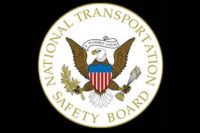Train derailment reveals chem transport risk, say environmental groups

 In the wake of a recent train derailment in NJ that released toxins and forced widespread evacuations, environmental groups are urging the Obama administration to use its power under the Clean Air Act to reduce chemical disaster risks.
In the wake of a recent train derailment in NJ that released toxins and forced widespread evacuations, environmental groups are urging the Obama administration to use its power under the Clean Air Act to reduce chemical disaster risks.
“This is the second major derailment of ultra-hazardous rail cars since the October 29th derailment near Louisville, KY,” said Rick Hind, Legislative Director of Greenpeace. “It was only a matter of luck that no one was killed in either of these accidents but people were forced to seek medical treatment. Hind said safer processes should be required so that poison gases are no longer shipped through residential communities.
Accidents aren’t the only things worrying Hind; he pointed to the graffiti that decorates thousands of rail cars across the country as proof that it's impossible to protect them from vandals or terrorists.
The incident near Paulsboro, NJ occurred on Nov. 30, when four Conrail tank cars derailed into the Mantau Creek, causing a release of vinyl chloride, a highly toxic chemical classified as a carcinogen by the EPA. Dozens or residents and workers sought medical treatment at a nearby hospital. Two hundred homes were evacuated; other residents were forced to shelter in place.
“This is not the first time vinyl chloride has sickened communities,” said Mike Schade, Campaign Coordinator for the Center for Health, Environment & Justice (CHEJ), citing a the explosion of a vinyl plastics plant in Louisiana earlier this year which sent a plume of toxic pollution downwind. “Safer alternatives are available, and that’s why leading businesses such as Apple, Google, Johnson & Johnson and Nike have committed to phasing it out.”
Denise Patel, Project Coordinator for NJ Work Environment Council said many toxic chemicals can be produced on site in smaller quantities to avoid transporting them, and pointed out that New Jersey requires all plants using large quantities of highly hazardous chemicals to review options for safer alternatives.
“Since adopting the requirement under NJ’s Toxic Catastrophe Prevention Act in 2005, 41 of New Jersey’s 85 most dangerous facilities, including oil refineries and chemical plants, have taken steps to reduce inventories of toxic chemicals, installed new equipment and processes to reduce the risk of accidents, and take other measures to make plants safer for workers and communities,” said Patel. “The EPA should use its authority under the Clean Air Act to do the same.”
Looking for a reprint of this article?
From high-res PDFs to custom plaques, order your copy today!





